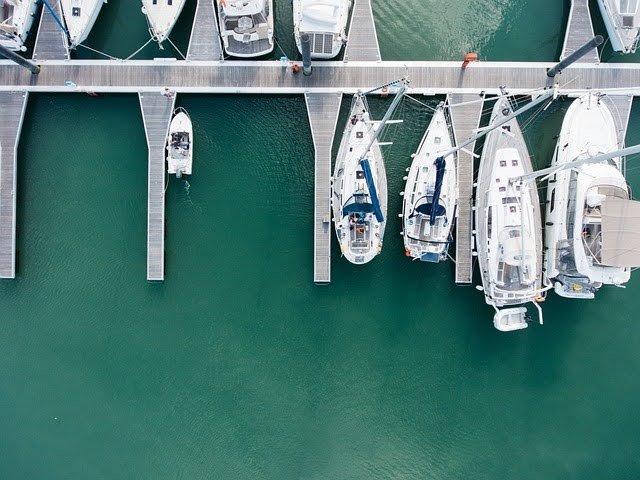
Choosing the right boat is a thrilling yet pivotal decision that can significantly impact your experience on the water. Whether you’re a seasoned sailor or a first-time boat buyer, the array of options and considerations can be overwhelming. This comprehensive guide will provide essential tips to help you decide when selecting the right boat for your needs. From understanding your boating goals to evaluating different types of vessels, we’ll explore the key factors that ensure a smooth voyage into boat ownership.
Define Your Boating Goals, Lifestyle, and Budget
A primary step in choosing the right boat is clearly defining your boating goals and intended use. Are you envisioning leisurely cruises, fishing adventures, water sports, or long-distance voyages? Different boats are designed for specific purposes, and understanding your primary activities on the water will guide you toward the most suitable type of vessel. Are you planning family outings, solo adventures, or social gatherings on the water? A boat’s size, layout, and features play a crucial role in ensuring that it aligns with your lifestyle and enhances your boating experience.
In addition, consider the initial purchase price and the ongoing operating costs of owning a boat. This includes fuel, insurance, storage fees, registration, and potential repair costs. Look into the loans offered at SeaDreamInc.com if you are considering taking out a loan for your purchase. Evaluating the total cost of ownership ensures that your investment remains within your budget and aligns with your financial goals.
Determining the Right Boat Type
Sailboats offer a timeless and eco-friendly approach to boating. If you enjoy the serenity of wind-powered navigation and the art of sailing, a sailboat might be the right choice. Sailboats come in various sizes, from small day sailors to larger cruising sailboats, catering to different skill levels and preferences. Motor yachts have potent engines and spacious interiors, ideal for extended cruises and entertaining guests. Motor yachts come in various sizes, from compact express cruisers to large, opulent yachts.
If fishing is your primary activity, consider a dedicated fishing boat. Fishing boats come in various styles, including center console, bass, and offshore fishing boats. Pontoon boats are famous for leisurely cruises and socializing on the water. With their spacious decks and stable design, pontoon boats provide a comfortable platform for family outings, picnics, and water-based social events.
Consider Size and Capacity
The size of the boat is a critical consideration that directly impacts its capabilities, stability, and accommodation. Larger boats typically offer more space for amenities, storage, and social areas. However, smaller boats can be more maneuverable and easier to handle, especially for beginners. Consider the trade-offs and determine the correct size based on your boating goals and preferences. Evaluate the boat’s capacity to accommodate the passengers you plan to have on board regularly. Additionally, assess the sleeping and seating arrangements if you anticipate overnight stays or extended cruises. A boat that comfortably accommodates your intended number of passengers ensures everyone enjoys a safe and enjoyable experience on the water.
Examine the Boat’s Construction and Materials
The hull is the boat’s primary structure, and its design plays a crucial role in performance, stability, and efficiency. Different hull designs cater to specific purposes, such as deep-V hulls for offshore cruising and flat-bottom hulls for stability in shallow waters. Examine the overall quality of the boat’s construction, including the fit and finish of components, the integrity of welds or joints, and the durability of materials. Well-built ships are more likely to withstand the rigors of boating, providing a reliable and safe platform for your adventures.
Evaluate Performance and Handling
Consider the type of propulsion system that best suits your needs. Outboard motors, inboard motors, stern drives, or sail can power boats. Each propulsion system has advantages and considerations regarding fuel efficiency, maintenance, and performance. Additionally, assess the horsepower required based on your intended activities and the size of the boat. The boat’s handling characteristics are crucial for a positive boating experience. Test the boat’s maneuverability, responsiveness to steering, and overall handling in different conditions. Consider factors like turning radius, stability in waves, and ease of docking. A boat that responds well to your commands enhances safety and ensures an enjoyable time on the water.

Look into the Features and Amenities
Different boats come with varying onboard amenities and features. Consider the amenities that enhance your boating experience, such as comfortable seating, entertainment systems, kitchen facilities, and sleeping quarters. For example, cruising boats may offer spacious cabins, while fishing boats prioritize features like live wells and rod holders. Prioritize boats equipped with essential safety features. Check for features like life jackets, fire extinguishers, navigation lights, and safety rails. Additionally, assess the boat’s stability and seaworthiness to ensure it can handle varying weather conditions safely.
Choosing the right boat is a journey that involves careful consideration of your boating goals, lifestyle, and preferences. Remember that boat ownership goes beyond the initial purchase – it’s an ongoing adventure that offers endless opportunities for exploration, relaxation, and creating lasting memories. As you embark on the exciting journey of choosing the right boat, may your voyages be smooth, your adventures be plentiful, and your time on the water be advantageous.




